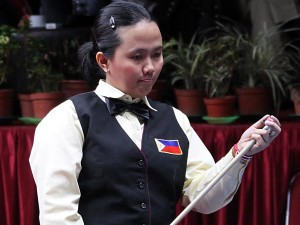The late Fr. Vini, rector of the San Jose seminary who recommended the now popular running priest Robert Reyes for ordination to the priesthood in 1982, is best remembered for his advocacy against boxing, a violent and cruel sport whose main aim is to maim.
While still a student working for a doctoral degree in Rome, Fr. Vini had submitted a paper in Moral Theology condemning the sport of boxing, saying boxing is immoral.
According to Fr. Reyes, Fr. Vini could be turning in his grave as millions or, even, billions of diehard sports fans around the globe, watched last Saturday’s (Sunday in Manila) Manny Pacquiao-Juan Manuel Marquez 12-round welterweight title fight wherein the Filipino fighter retained his World Boxing Organization (WBO) crown via a controversial majority decision.
Boxing used to be my favorite sport. But in recent years, I walked away from it on moral and medical grounds. On moral grounds, I explained that I’ve had enough of shrewd and sleazy promoters and managers, rigged ratings, gross mismatches and scripted decisions. Besides, the boxers, mostly the uneducated ones, were being exploited and I wanted no part of it.
On the other hand, I love covering amateur boxing because I respect the people who run it. They care about their boxers and ensure the safety of the young men and women under their wings. And, more importantly, there are no greedy and scheming promoters and managers to deal with.
On medical grounds, I decry the inherent dangers in pro boxing that leave the hapless boxers permanently brain-damaged, disabled or dead and the opposition of the medical community, including renowned neurologists and members of the American Medical Association and British Medical Association.
* * *
Heavyweight great Smokin’ Joe Frazier, who died of liver cancer recently at age 67, took too many punishments during his boxing career so that he had slowed sharply and his speech slurred, underscoring once more the brutality of the sport.
An arch rival of heavyweight legend Muhammad Ali, Frazier fought Ali three times, twice in New York City’s historic Madison Square Garden and once at the Araneta Coliseum in Cubao.
In their third and last fight here on October 1975, now known worldwide as the “Thrilla in Manila,” both fighters engaged in a fight-to-the-finish that will be long remembered in boxing history.
Ali successfully defended his heavyweight title, stopping the aggressive but terribly outclassed Frazier in the 14th round when the brave challenger was held back by his veteran trainer Eddie Futch because his ward was unable to see. Ali himself was too exhausted and undecided whether to go on for the 15th canto, retaining his crown while sitting in his corner stool.
“They should have both retired after the Manila fight,” said noted boxing writer Ed Schuyler Jr. after that classic bout. “They left every bit of talent they had in the ring that day.”
In later years, Ali, widely regarded as “The Greatest,” fell victim to Parkinson’s syndrome. “Ali now moved slowly, almost deliberately,” once wrote famous American TV sportscaster and controversial journalist Howard Cosell in his best-selling book “I Never Played the Game.”
Once a symphony of metaphors and rhymes, Ali’s speech was now thick, and he spoke in half-completed whisperings, Cosell reminisced. “Too many blows to the head and body had transformed [him] into somebody I no longer knew. And so the horrible feelings were there, chipping away at my romance with boxing.”
———–


